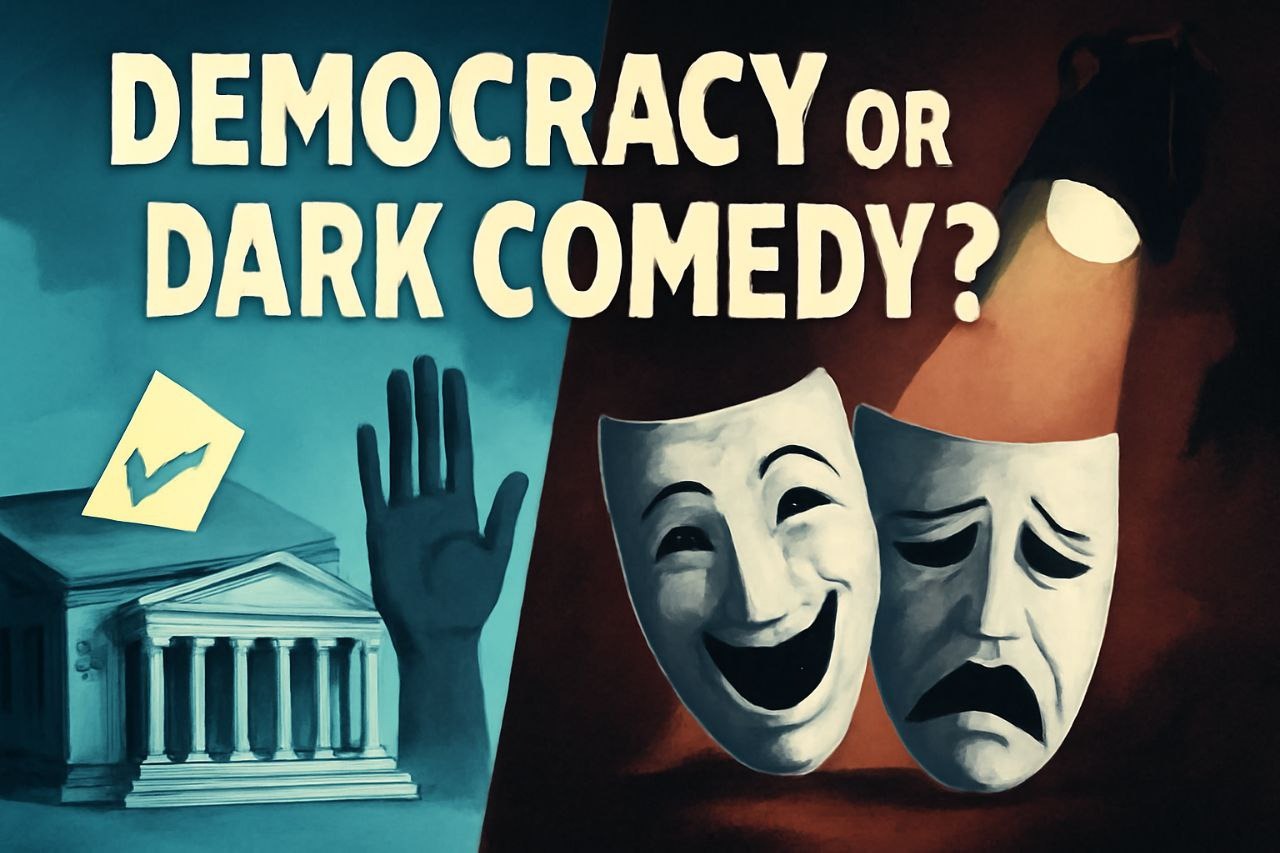Democracy or Dark Comedy? The Curious Case of Jail, Votes & Political Privilege in India

"He can’t vote, but he can govern. He can’t walk free, but he can walk into Parliament."
Welcome to the great Indian paradox, where an undertrial can fight elections but not cast a vote, and a prisoner can lead a party campaign while others rot behind bars waiting for justice. If it sounds like satire, it’s not. It’s the everyday reality of the world’s largest democracy.
The Legal Irony: Vote Denied, Power Allowed
Under Section 62(5) of the Representation of the People Act, 1951, a person in jail or custody (other than preventive detention) cannot vote.
However, under Section 8, a person can contest elections unless convicted and sentenced to more than two years.
So, a person in jail, even under serious charges, can be:
- Nominated by a political party
- Campaign (virtually or via proxies)
- Win the election
- And even take oath, while still behind bars.
Real - Life Examples That Redefine Irony
1. Rashid Engineer (2024) - Baramulla, J&K
2. Amritpal Singh (2024) - Khadoor Sahib, Punjab
3. Arvind Kejriwal - Delhi CM (2024)
4. Lalu Prasad Yadav - RJD Chief
Though convicted in the fodder scam, he continued to run the party by proxy.
Used virtual presence and family (Tejashwi Yadav) to remain politically active.
Even from jail or hospital, he pulled strings within Bihar politics.
5. Sanjay Dutt (2009) - Actor turned Politician
Was convicted under the Arms Act.
Samajwadi Party gave him a ticket, but he was barred from contesting due to conviction.
Yet the same rules would’ve allowed him to campaign if he was only an undertrial.
6. Mohammad Shahabuddin - RJD, Bihar
The Legal vs. Moral Dilemma
While the Constitution allows presumption of innocence until proven guilty, the question remains:
Should moral legitimacy and electoral legitimacy be held to different standards?
Many undertrials are in jail for years without conviction. Yet they are denied even the right to vote - let alone contest elections.
On the flip side, powerful politicians manipulate the same legal system to get:
- Interim bail for campaigning,
- Favorable media narratives
- Sympathy from voters.
The Judiciary: Between Fairness and Favor
The judiciary, too, walks a tightrope, especially in election season. Interim bail for Kejriwal was based on “fairness of democratic process.” But:
- Why isn’t the same urgency shown for common undertrials?
- Why don’t those accused of non-bailable offenses get campaign holidays?
Is justice truly blind, or does it peek to check who's knocking?
Public Sentiment: Between Frustration and Fatalism
The public watches with resigned amusement:
- “Netas in jail win elections, but my neighbour’s brother is denied bail for stealing a fan.”
- “He’s too dangerous to vote, but not dangerous enough to stop from becoming an MP.”
It becomes a cruel joke. A comedy. A farce.
A System Needing Reform
India’s democratic and legal frameworks must evolve:
- Allow voting rights to undertrials.
- Bar serious accused from contesting unless cleared.
- Ensure equal access to bail, not just for the powerful.
Until then, Indian democracy will remain the world's most vibrant circus, where the audience laughs, not because it’s funny, but because the absurdity demands it.
"When justice bows to power and irony becomes law, democracy doesn't die, it entertains." ~ Adarsh Singh
Thu Apr 24, 2025
